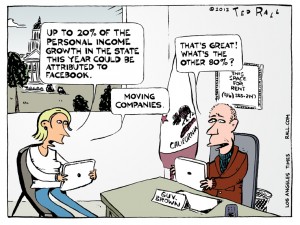
Lyndon Johnson, cautioned that his support of the Civil Rights Act was too bold and politically risky, famously responded: “What else is the presidency for?”
The United States of America is one of the richest, if not the richest, nation-state in the history of the world. It also is the most unequal. So its people live in misery and squalor. What else is a country’s spectacular wealth for, other than to provide a high standard of living for its citizens?
A Leftist economic programme should begin with the government’s budget. How should revenues be collected, and from whom? How should the money be spent? The Left must articulate a holistic approach to the federal budget.
According to the U.S. Treasury’s website: “The federal government collects revenue from a variety of sources, including individual income taxes, payroll taxes, corporate income taxes, and excise taxes. It also collects revenue from services like admission to national parks and customs duties.” This came to $4.44 trillion in 2023. The biggest source of this cash bonanza was income taxes.
In addition, states and cities took in about $2 trillion.
$6 trillion is, to state the most obviously obvious thing in the world, a staggering enormous amount of money. Yet we rarely take a beat to take in that fact.
Part of the reason is that it doesn’t feel like we live in a rich country with a huge amount of taxes coming into its coffers. It sure doesn’t look like one. People sleep on the streets. Factories are abandoned. Schools are worn. Hospitals are chaotic, understaffed and depressing. Storefronts are boarded up. Litter abounds. Bridges collapse, subways derail, doors fall off airplanes, high-speed rail and free college and affordable healthcare are for other countries.
Why can’t we have nice things? One can blame cycles and systems: late-stage capitalism, the duopoly, the corrupt revolving door between business and the government officials who are supposed to regulate them. Fundamentally, the answer boils down to bad priorities. The people in charge would rather spend our money on the things that they care about than what we want and need: sending weapons to other countries instead of feeding the poor, tax breaks for corporations rather than treating young men addicted to opioids, building more prisons in lieu of hiring social workers.
Reordering a society’s social and economic priorities is a complex task. To keep things relatively simple let’s set aside the comparatively lesser and infinitely more diffuse state and local budgets in order to focus upon the federal budget—round it up to $5 trillion—as the principal engine in the Left’s proposed shift of the U.S. to a country that puts people first. Further to the goal of simplification let’s assume that overall revenues remain flat in real terms adjusted for inflation—no tax cuts or hikes, no significant changes in tariffs like a trade war.
The most recent U.S. military budget, for 2024, comes in at $886 billion—by far the biggest expense, and greater than all other federal spending combined. And that’s radically understating the real cost of militarism. As the socialist journal Monthly Review calculates, when you include costs associated with medical and other expenses related to veterans, debt service on deficit spending for old wars and military aid to foreign countries, the real number doubles. So the actual 2024 total is closer to $1.6 trillion.
Recognizing that nothing makes us less safe than a forward, aggressive military posture in which U.S. forces and proxies are stationed around the globe. They are sitting ducks and provocateurs. A Left worthy of its name favors a military apparatus capable of defending the U.S.—nothing more, nothing less. We need missile defenses, border protections, a naval force to protect our coasts, the kind of domestically-focused armed forces that could have effectively responded to the 9/11 attacks. Given our exceptionally secure geographical situation, surrounded by two vast oceans and directly bordered only by two nations, both close allies, we can get defense—the real thing, not what the hegemony we buy with the Department of Defense—on the cheap.
Chalmers Johnson, the academic and great critic of the American empire, called the Pentagon to ask for a list of its overseas bases; not only could they not produce such a list, they could only estimate the number. (It’s 800, more or less.) Not knowing how many bases you are is a major sign of overextension. So is the reaction, when learning that one of your country’s soldiers has been killed in combat, of surprise that we were in that nation in the first place. We should close every last one and bring every last soldier and sailor home.
Brazil, a regional superpower that is bigger than the contiguous 48 states, has a military budget of $20 billion. That’s a rounding error, 2.5% of ours. Of course, Brazil doesn’t wage wars or plant bases on the opposite side of the planet—and neither should we. We can spend that 97.5% of that $1.6 trillion on stuff that helps rather than kills.
Next week, a look at other federal budget expenses the Left should slash so we can redirect those precious funds to addressing our wants and needs.
(Ted Rall (Twitter: @tedrall), the political cartoonist, columnist and graphic novelist, co-hosts the left-vs-right DMZ America podcast with fellow cartoonist Scott Stantis. You can support Ted’s hard-hitting political cartoons and columns and see his work first by sponsoring his work on Patreon.)

